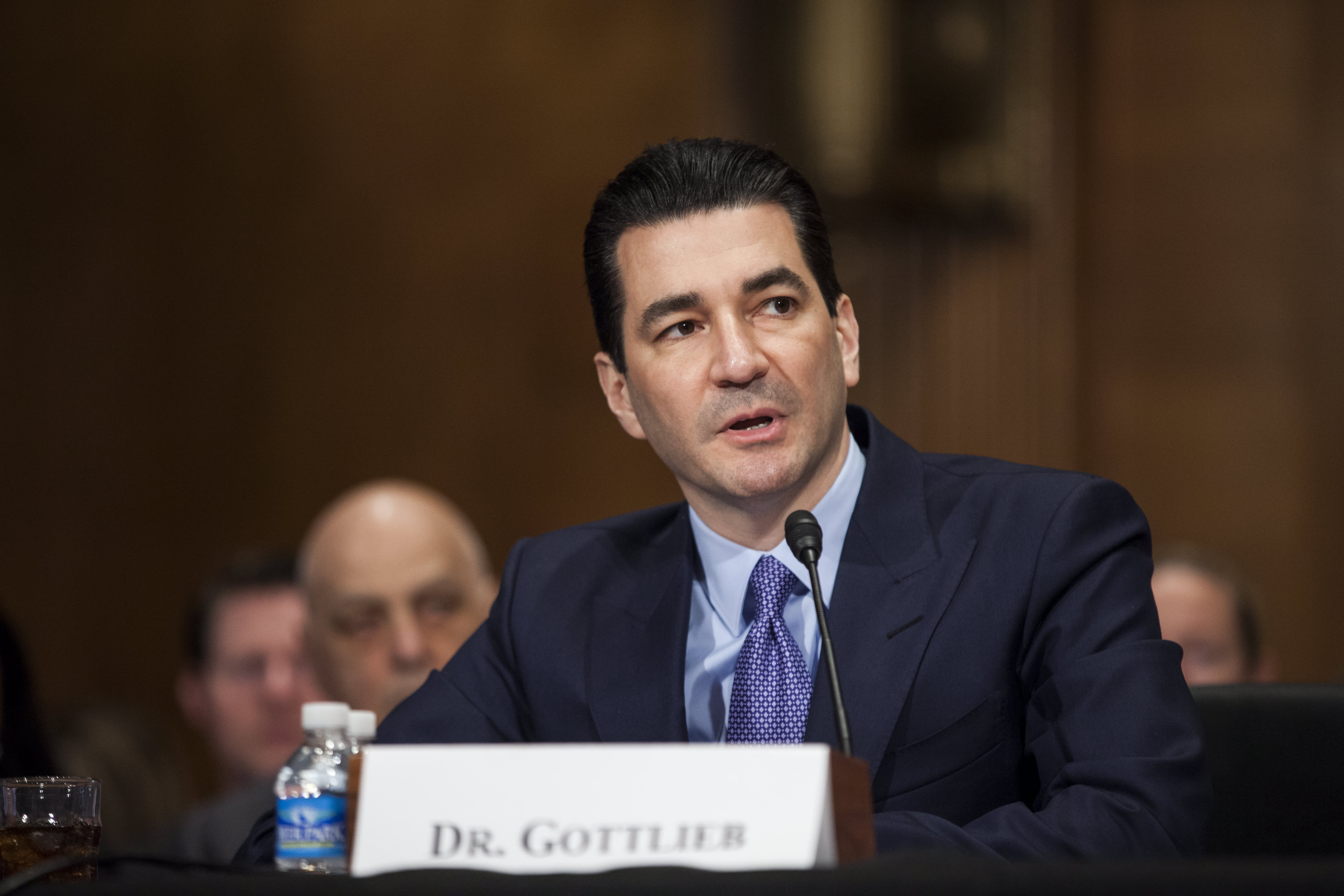Dr. Scott Gottlieb told CNBC on Monday he believes coronavirus cases in the U.S. will continue to decline into the spring and summer, allowing Americans to ease up on some pandemic precautions for the time being.
However, in an interview on “Squawk Box,” the former Food and Drug Administration commissioner stopped short of totally agreeing with the recent op-ed in The Wall Street Journal titled, “We’ll Have Heard Immunity by April.” It was written by Dr. Marty Makary, a professor at Johns Hopkins University School of Medicine, and sparked discussion since being published Thursday.
U.S. Covid cases have fallen 77% in the past six weeks, Makary notes in the article, and he contends that decline is largely because the level of natural immunity in the American population is “almost certainly” higher than antibody studies suggest. When factoring that in with the pace of vaccinations, Makary writes, “I expect Covid will be mostly gone by April, allowing Americans to resume normal life.”
Gottlieb said he does not “necessarily agree” with some of the numbers Makary used to undergird his argument but added, “I think the sentiment is right.”
Makary writes that about 55% of people in the country have natural immunity from a prior coronavirus infection. While agreeing that Johns Hopkins’ confirmed U.S. case total of 28.1 million is an undercount, Gottlieb told CNBC he believes about 120 million people — or roughly 36% of the American population — has been infected with the coronavirus throughout the pandemic.
After factoring in vaccination data, Gottlieb estimated about 40% of U.S. residents right now have antibodies from prior infection or inoculation — a percentage that will rise as more people are vaccinated. According to the CDC, 43.6 million Americans who have received at least one dose of the two-shot Covid vaccines from Moderna and Pfizer since they received emergency emergency use authorization from the FDA in December.
“When you’re getting to 40% or 50% of the population with some form of protective immunity, you don’t have herd immunity but you have enough immunity in the population that this [virus] just doesn’t transfer as readily,” Gottlieb said.
“I do think that as we get into the warm weather, as we vaccinate more of the population and in view of the fact that at least one-third of Americans have had this, I do think that infection levels are going to come down dramatically over the course of the spring and summer,” Gottlieb said.
White House chief medical advisor Dr. Anthony Fauci has previously said that 75% to 85% of the population would need to develop immunity to create an “umbrella” of protection. Officials with the CDC also recently said that upward of 85% of people would need to be covered to achieve so-called herd immunity if a fast-spreading virus variant, such as B117, which was first reported in the U.K., become the dominant strain in the U.S.
The presence of more contagious virus variants mean some parts of the U.S. have higher infection rates this summer “than it otherwise would’ve been,” Gottlieb added. “But I don’t think it changes the overall trajectory.”
If that trajectory does hold and it’s a “low-prevalence environment” in the coming months, Gottlieb said he expects children to be able to safely attend summer camp, for example. “I think people are going to be going out and doing a lot of stuff this summer, a lot of pent-up demand for consumer spending,” he said.
“I think in the fall we’re going to have to take certain precautions, but we’re going to be back doing stuff. Then, as we get into the deep winter as this starts to circulate again … I think come December, we may start to pull back,” Gottlieb said. “That doesn’t mean we’re going to have shutdowns and be doing what we did this [past] December but it means we might not have holiday parties, board meetings in December might be Zoom rather than in-person meetings.”
Gottlieb stressed that he believes the U.S. recovery from the pandemic will not be a “linear progression,” where coronavirus risk steadily declines month after successive month. Winter months could be more challenging because it’s a respiratory pathogen, he cautioned. “Once it becomes wintertime again in 2021, 2022, we’re going to need to take certain precautions. I think if there’s going to be a normal time over the next 12 months, it’s likely to be this spring and summer.”
Disclosure: Scott Gottlieb is a CNBC contributor and is a member of the boards of Pfizer, genetic testing start-up Tempus, health-care tech company Aetion and biotech company Illumina. He also serves as co-chair of Norwegian Cruise Line Holdings‘ and Royal Caribbean‘s “Healthy Sail Panel.
